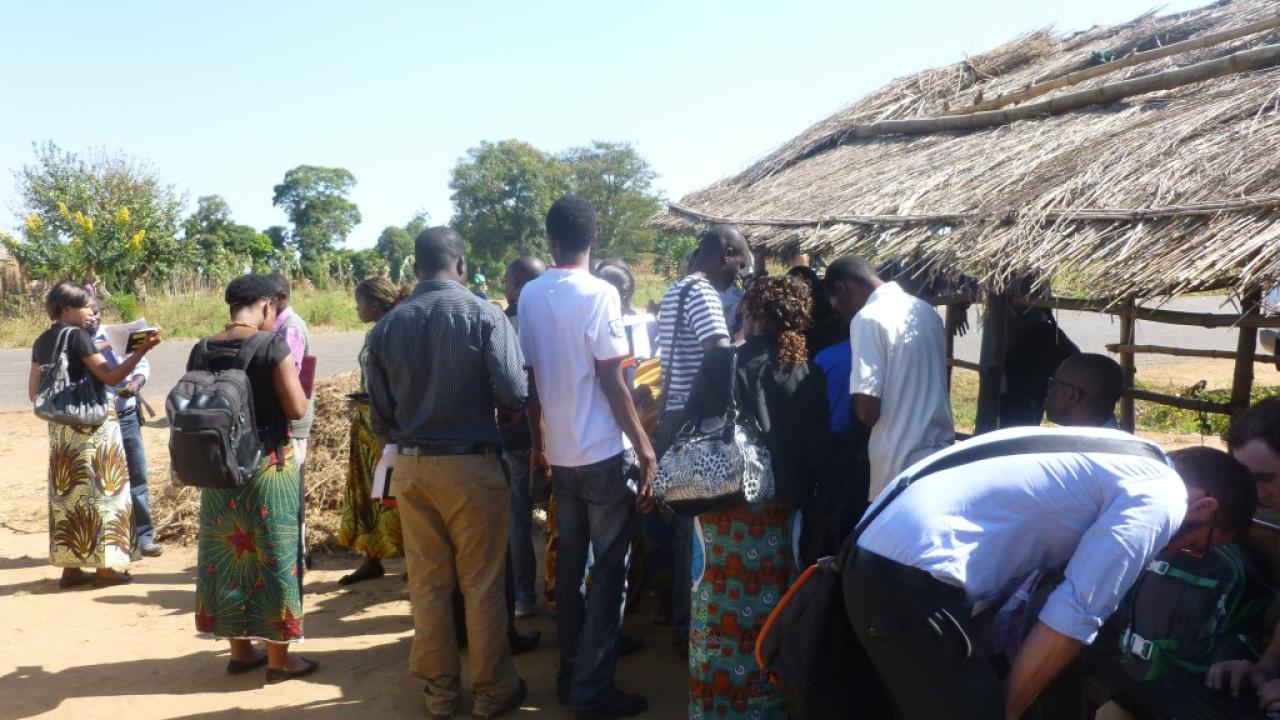
Development agencies and governments are advancing Conservation Agriculture (CA) to promote food security and to improve the environment. CA promotes soil fertility and sustainable yields, and reduces soil erosion and sedimentation. In Malawi, as in much of the developing world, adoption of CA practices has been disappointing, arguably due to inadequately designed CA policies with insufficient incentives to overcome the barriers to adoption for local farmers.
Project overview
Lead PI: Andrew Bell, New York University
Partners: Lilongwe University of Agriculture and Natural Resources, University of Leeds, IFPRI
Timeline: 2014-2017
Funding: $772,951
Key Innovation: Agglomeration payments and peer monitoring for conservation agriculture compliance
Some of the impediments faced by local farmers include lack of information about CA management practices, uncertainty concerning the costs and benefits of CA practices, sensitivity to increases in yield variability, shorter planning horizons, and high discount rates. Although a few CA policies have been successful, generally these barriers cause farmers to dis-adopt CA practices or to stop complying with CA agreements before farmers can realize personal gains from these techniques.
Researchers supported by the Feed the Future Innovation Lab for Assets and Market Access are building on prior research that suggests that agglomeration bonus payments (AP) may offset some program costs by reducing moral hazard and encouraging sustained adoption. These payments provide
- a flat subsidy that induces landowners to participate in the CA program, and
- an agglomeration bonus paid to landowners when their land enrolled in the CA program shares a common broader with a neighboring parcel also enrolled in the CA program.
This interdependence between neighboring landowners’ agriculture decisions creates a positive network externality that provides an incentive for each adopting landowner to serve as an “extension agent” promoting CA to their neighbors, potential increasing community adoption rates.
Project Summary
The AMA Innovation Lab is supporting an evaluation of the reduction in moral hazard that AP may allow in the promotion of land conservation practices in Malawi’s Shire Valley basin. A particular concern in this region has been land degradation and economic damages to downstream hydropower infrastructure associated with poor land-use practices upstream.
In partnership with the Malawi Department of Land Resources and Conservation (DLRC) and the National Smallholder Farmers’ Association of Malawi (NASFAM), and leveraging a recently funded evaluation of agglomeration payments, this research will evaluate the impacts of AP on the adoption of agricultural conservation technologies being promoted currently by the government of Malawi, under different conditions of compliance monitoring, providing an understanding of the role that social pressures and interactions play in reducing monitoring costs and improving program effectiveness.
Anticipated Impacts
This intervention has the potential to take advantage of the informal institutions and social norms that already exist to regulate farmers’ behavior and promote compliance. Creating positive network externalities between neighboring farmers’ agricultural decisions could strengthen the village’s organizational structure, promote information diffusion and the transfer of technology, and increase adoption and compliance of CA management.
